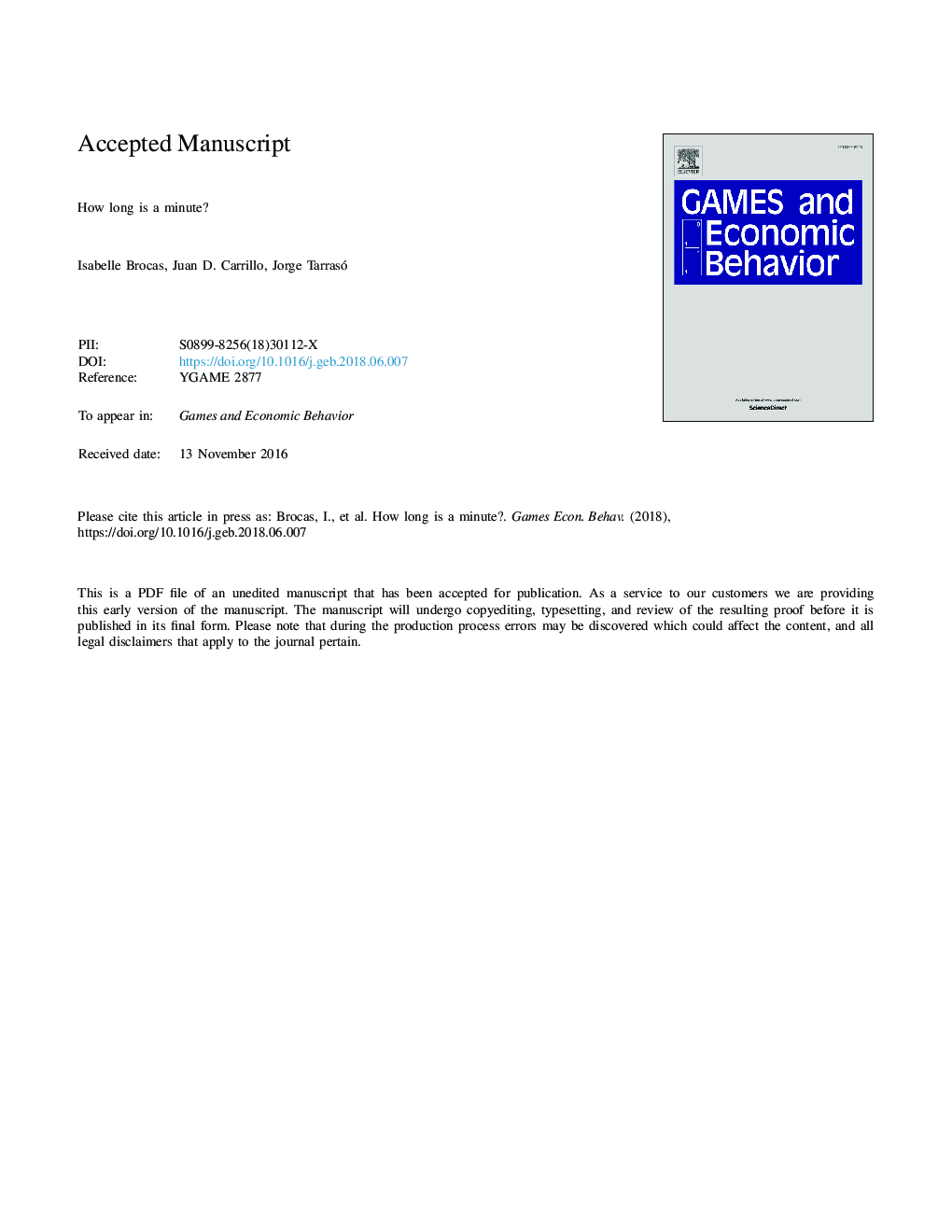| Article ID | Journal | Published Year | Pages | File Type |
|---|---|---|---|---|
| 7352704 | Games and Economic Behavior | 2018 | 38 Pages |
Abstract
Psychophysics studies suggest that our perception of time is different from the objective passage of time. Economics research emphasizes that the value of a reward depends on the delay involved. In this paper, we combine both strands and estimate time perception and time discounting functions at the individual level in an incentivized controlled laboratory environment. We find a negative and statistically significant correlation between time perception and time discounting: subjects who overestimate objective time intervals are less willing to delay gratification. The result suggests that our ability to delay consumption is related to our mental representation of time delays.
Related Topics
Social Sciences and Humanities
Economics, Econometrics and Finance
Economics and Econometrics
Authors
Isabelle Brocas, Juan D. Carrillo, Jorge Tarrasó,
